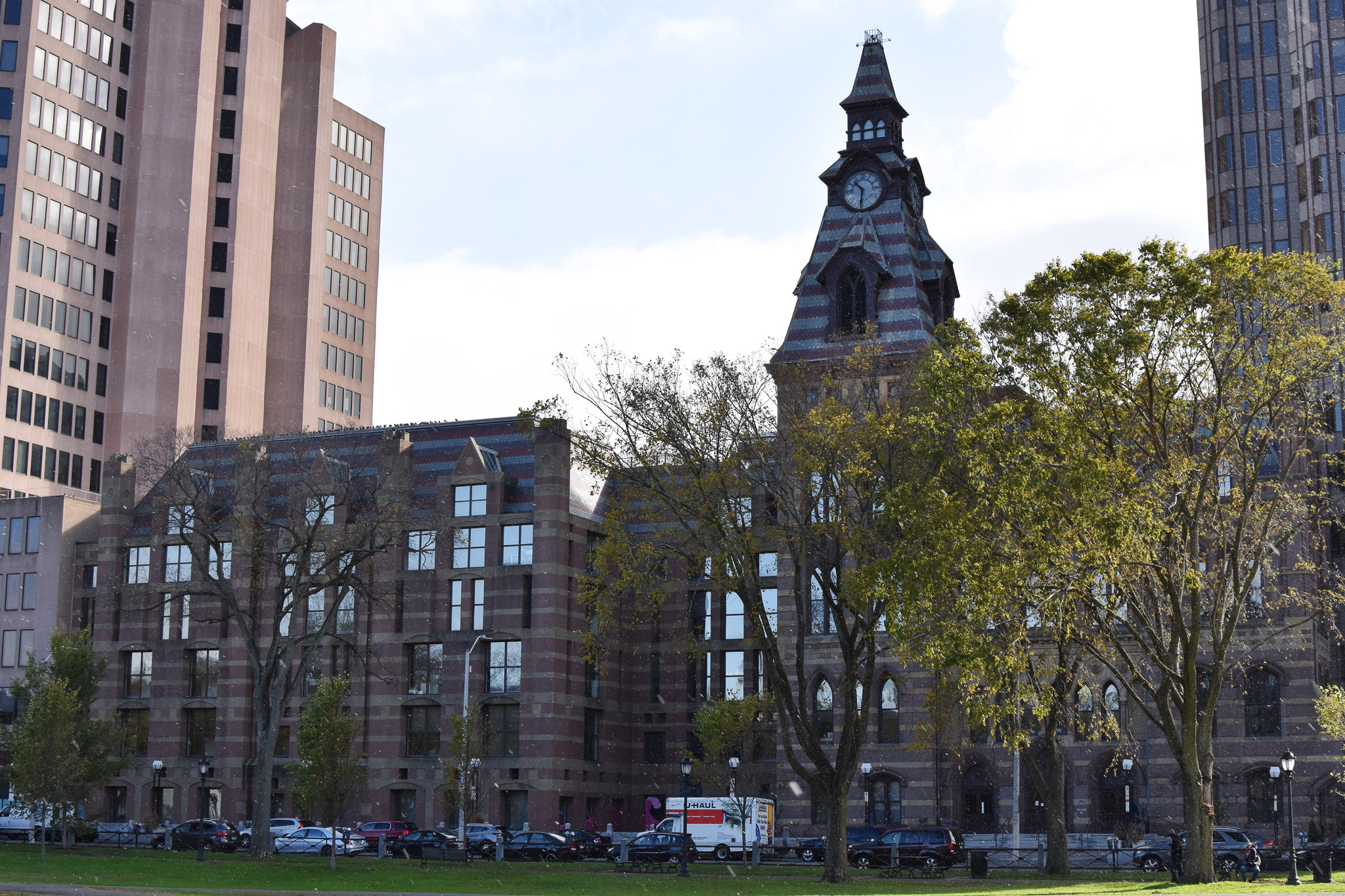Public health restrictions, economic hardship bring new challenges to New Haven tax assistance groups

Karen Lin, Staff Photographer
At the start of each year’s tax season, some New Haven organizations help local low-income families file their tax returns for free. But the 2021 tax season is bringing new challenges to area volunteers, due to ongoing public health restrictions and nearly a year of pandemic-related financial hardship that disproportionately impacts lower-income residents.
Local groups operating under the IRS’ Volunteer Income Tax Assistance program, better known as VITA, are having to adapt their tax filing guidance to the changing circumstances. Over a dozen VITA groups operate in the Elm City, serving individuals making $57,000 a year or less as well as taxpayers who require special assistance with filing. Among New Haven’s volunteer groups is Yale VITA, a university organization with over 100 graduate and undergraduate members that is a part of the Yale Hunger and Homelessness Action Project.
The 2021 tax season began last week, nearly a year into the coronavirus pandemic, and has introduced new challenges for local VITA volunteers: Public health restrictions have limited volunteers’ ability to meet with every resident who could benefit from their services, and the economic hardship caused by the pandemic has made VITA services — and the tax refunds they help procure — even more important to their low-income clients.
In ordinary circumstances, VITA service providers generally operate in person at public locations such as libraries or community centers. Yale VITA, which has run out of the Main Ives Library on Elm Street in past years, has shifted to remote services for the 2021 tax season. Other local VITA partner organizations, including the Community Action Agency of New Haven, continue to offer limited in-person tax filing assistance at select locations.
“It’s undoubtedly a really high-need year for clients, and at the same time, it’s so much harder than any other year to actually be getting those services to clients,” said Rachel Handler ’23, a co-project head for Yale VITA.
Last tax season, the pandemic strained VITA’s resources nationwide. As reported by CNBC, the IRS said that the national VITA program attracted 10,000 fewer volunteers and prepared one million fewer returns than in 2019. Stacey Downer, a VITA coordinator at 25 Temple St.’s Havenly Treats, said she is seeing these difficulties play out in the New Haven area this year as well.
This is the first year that Havenly, a cafe and bakery run by refugee women that reopened last September, has served as a VITA site. According to Downer, restaurant ownership and VITA coordinators decided to open a site at Havenly to help address the decrease in in-person Elm City VITA service during the pandemic.
Havenly’s in-person operation means that many precautions have to be taken at the site, including masks, disinfection and limited occupancy. They are also asking that clients keep their children at home for their filing appointments.
Downer told the News that she believes the ever-shifting status of local infection rates has led many volunteers who had originally signed up to help with in-person filings to back out. This has created a problem, as the demand for in-person tax filing help remains strong. Downer said that on Tuesday, the second day of Havenly’s VITA service opening, she received 16 phone calls requesting appointments.
Camila Guiza-Chavez, the VITA site coordinator for Havenly, pointed out that mass layoffs and delayed stimulus checks are affecting workers across the country. These economic strains “are absolutely hitting our community as well,” Guiza-Chavez said, citing her personal experience working both with Havenly and on VITA. “I don’t know that that’s different from other cities that you’ll go to.”
Working virtually, Yale VITA has not faced the same volunteer shortage as the Havenly site. Despite this, according to Handler, Yale VITA has nonetheless been forced to adjust quickly to the large demand for tax filing help.
“It’s been really busy; we had to hit the ground running this week,” she said.
Both Gardner and Avik Sarkar ’23, a site coordinator and co-director of training for Yale VITA, spoke about the new challenges of a fully remote volunteer format, including reduced capacity, the difficulty of developing trusting relationships with clients through screens and phones, and simple logistical issues, as some clients have limited access to computers. To adjust to this and to better integrate with other New Haven VITA organizations, the Yale VITA team set up a hotline number that people can call if they have questions about the virtual process or want referrals to in-person services. Handler said the line has been inundated with calls in the past few days.
Sarkar said that while volunteers have had to deal with technical challenges that are in many cases unforeseen, remote services are also broadening the scope of clients that they can serve. For example, North Haven residents who would not normally make the trip to a downtown VITA site now have access to its services.
Gardner said she is aware of the challenges this year brings to VITA, but remains inspired by the volunteers’ ability to work through them and help the New Haven community.
“It has been the most impossible, heartbreaking year in so many ways,” Gardner said. “And obviously it’s going to be a lot harder to do what we do, and get clients their refunds and their credits that they’re owed. But I am super proud of our preparers and the work that they’re doing to make it work despite all of that. … It’s cool to see.”
This year the IRS delayed the start date of the tax filing season to Feb. 12. The deadline for filing tax returns currently remains April 15.
Clay Jamieson | clay.jamieson@yale.edu







